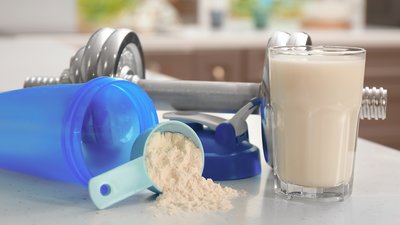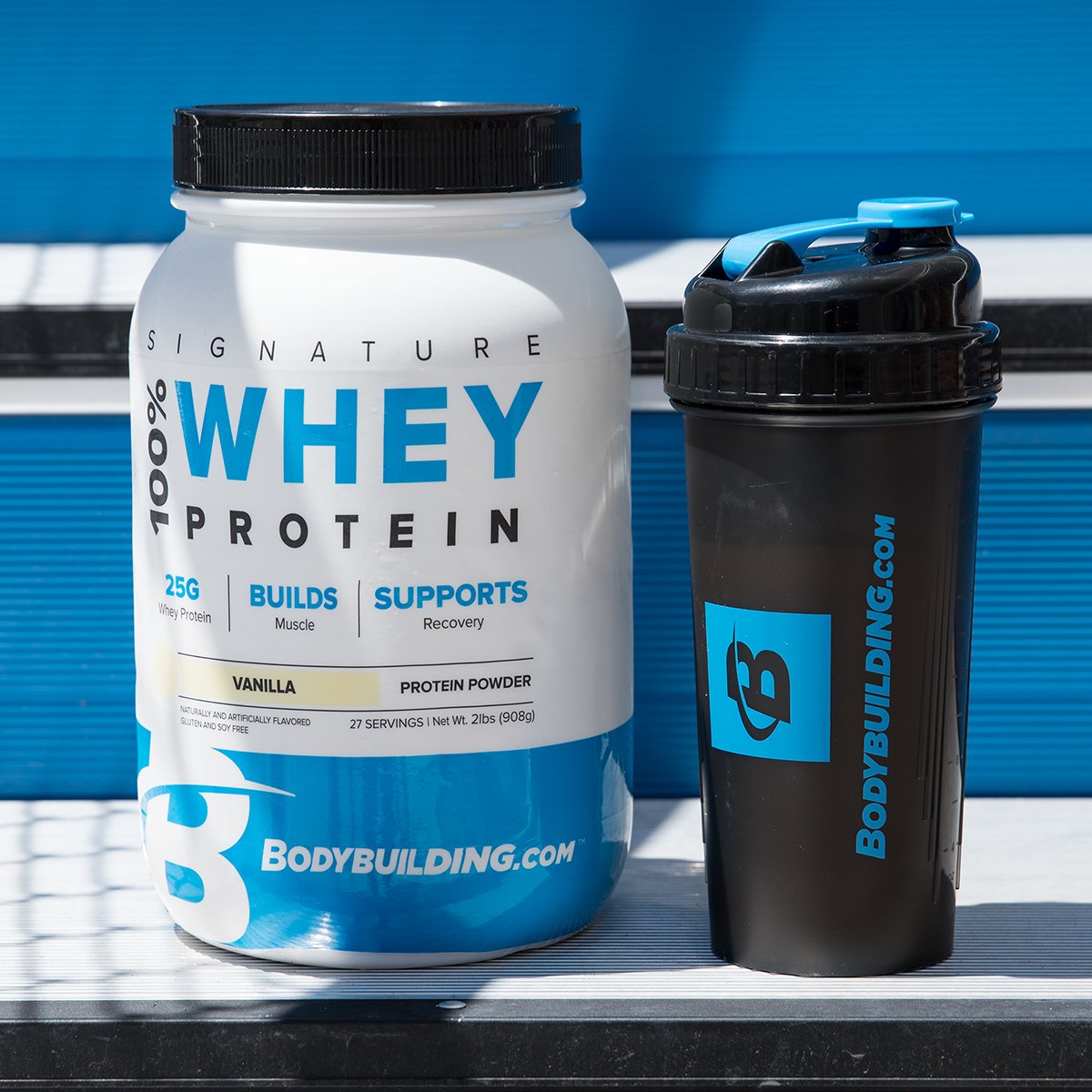While most are made from milk, lactose-free proteins have been developed for people who have milk allergies. Some are made from lactose-free dairy. Others are completely dairy-free, like plant proteins and products made from eggs and beef.
If you're looking for a vegan or vegetarian products, there are more options than ever. Some of the most popular plant proteins include:
Soy is unique because it is one of the only complete vegetarian proteins. Soy products are rich in the three branched-chain amino acids (BCAAs) which also help your body recover and rebuild after physical activity. It is also high in glutamine, which helps your body recover after exercise, and arginine, which helps dilate blood vessels to get nutrients to your muscles more quickly.
Pea is an increasingly popular option, usually made from yellow split peas. It does not have the same amount of the three BCAAs as whey, but has a more complete amino acid profile than many other vegetarian options. It is a common ingredient in vegetarian blends, but also popular among people with dairy allergies.
Brown rice isn't a complete protein, but that doesn't necessarily mean it's not worth taking—as long as you take enough. A prominent study found that resistance-trained men who took a hefty 48 grams of rice isolate on training days experienced similar muscle gains to men taking the same amount of whey.
Hemp is an increasingly popular choice because of its high digestibility. Hemp is also higher in fiber than animal-derived powders, which means it can help reduce hunger sensations, and it also contains omega-3 fatty acids.
Blended plant proteins combine different incomplete plant sources to form complete proteins, while also capitalizing on the high amount of nutrients in many plant-based sources. Many high-quality plant powders include the other ingredients listed here, as well as more exotic plants such as buckwheat, amaranth, and all manner of vegetables.


